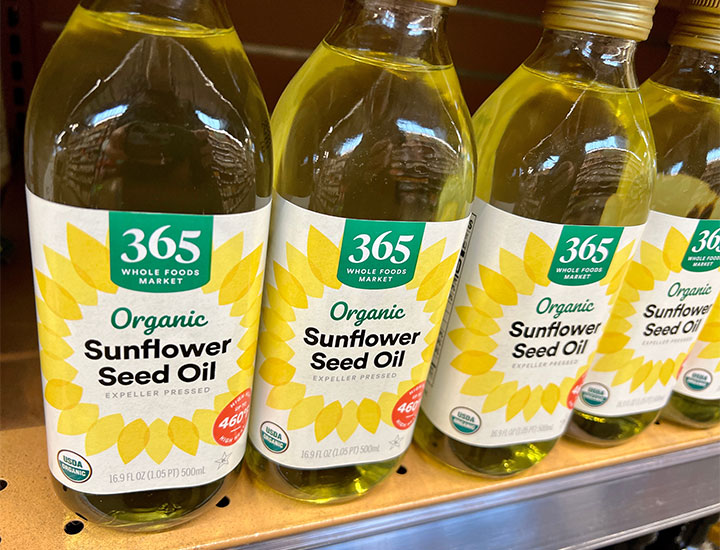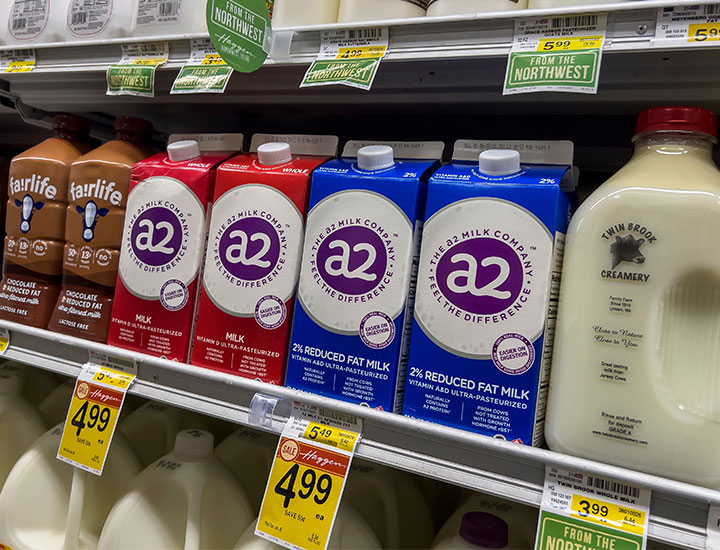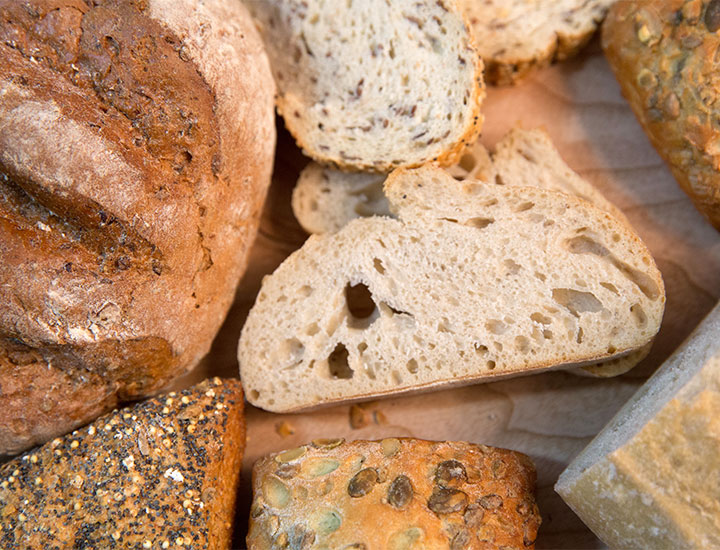Inflammation is a hot topic, and for good reason. It’s part of your body’s natural defenses against things that could harm your health, like bacteria, viruses, and toxins. But, your immune system is complicated, and it can sometimes be triggered by unexpected things like certain foods. And while it’s crucial to include anti-inflammatory foods in your diet, it’s equally important to reduce food components that can trigger and worsen existing inflammation.
To learn more about common foods that could be causing your chronic inflammation, we reached out to Dr. Sarah Mathis, a licensed family physician, gut and hormone specialist, and founder of Sarah Mathis Wellness. She said that foods with seed oils, pasteurized dairy productsAnd gluten could cause chronic inflammation because they are harder for your body to digest and are heavily processed so they can alter the bacteria in your gut. Find out more below!
LEARN MORE: 3 Morning Mistakes That Doctors Say Worsen Inflammation and Weight Gain
Use biohacking to fight aging with scientifically proven products from Somavedic

Shutterstock
1. Seed oils
Industrial seed oils are highly processed oils extracted from the seeds of plants such as soybeans, corn, cottonseeds, safflower seeds, and rapeseed (which is the source of canola oil). They are incredibly high in omega-6 fatty acids, a type of polyunsaturated fat found in vegetable oils, nuts and seeds. When eaten in moderation and in place of saturated fats, they can be beneficial for weight loss. But, a high ratio of omega-6 to omega-3 can contribute to inflammation in the body.
“(Seed oils) include canola oil, soybean oil, sunflower oil, rapeseed oil, grapeseed oil and vegetable oil. They contain a high from omega-6 to omega-3 which skyrockets inflammation in the body,” Mathis explains. “High omega-6 levels increase your risk of heart disease thanks to high levels of a substance called linoleic acid which, when present in high amounts of omega-6s, can increase the risk of heart disease. compared to the omega-3 linoleic acid which protects against heart disease.” Nobody wants that!
Instead, Mathis suggests opting for healthy fats such as omega-3s, which are found in salmon, sardines, walnuts and cod liver oil. “These protect against heart disease and inflammation. They also help decrease pain in the body by decreasing pain-causing substances called prostaglandins,” says Mathis. “Other healthy fats include avocado, olive oil, avocado oil, grass-fed butter, grass-fed animal fats (lard/tallow), and coconut oil. extra virgin coconut. All of these fats are lower in omega 3 and when used in moderation can heal your body from inflammation.”

Shutterstock
2. Industrialized and pasteurized dairy products
Likewise, foods containing industrialized and pasteurized dairy products have been shown to cause inflammation. “The process of pasteurizing dairy products destroys all of the beneficial agents that protect your body against inflammation. Pasteurization kills the enzyme lactase, which is responsible for breaking down the milk sugar, lactose. The enzyme helps make dairy products easier to digest”, notes Mathis. “Pasteurization has also damaged the structure of the milk, making it more inflammatory in the intestinal mucosa because it (contains) oxidized amino acids. In addition, these cows are fed grain and this can again increase the omega 6 to omega 3 dairy products often contain hormones to cause cows to produce more milk and grow faster.”
She recommends choosing grass-fed or pasture-fed and raw dairy products. “Cows that only eat grass contain significantly higher levels of omega-3s than their grain-fed counterparts. Typically, they are raised eating various grasses that cows are designed to eat. , dairy products that are not pastured not only contain the enzyme lactase to help break down the dairy but have immuno-protective properties,” explains Mathis. Or, you can try alternative plant milks like almond milk or oats!

Shutterstock
3.Gluten
And some people also suffer from inflammation from gluten-based food products. Mathis warns: “Especially in this country, where wheat crops are heavily sprayed with pesticides, the level of inflammation has become high. Gluten has been shown to cause inflammation not only in the gut, but in the brain and may lead to an increased risk of inflammation in celiac disease (an autoimmune disease to gluten), schizophrenia, bipolar disorder, anxiety and depression.” Ouch!
“Gluten contains gliadin and glutenin proteins which are partially broken down in the intestines by transglutaminase-2. immune,” she explains. Alternatively, Mathis suggests eating whole grains instead. “Whole grains are still a big part of a diet. They contain fiber and various nutrients. As long as you monitor with gluten-free packaging, foods do not contain high levels of ‘white flour’ or sugar and of gums which can lead to bloating and abdominal disorders.”

Shutterstock
The essential
While keeping all of this in mind, it is important to note that everyone is different and not everyone will have the same triggers. So, before making any major dietary changes, you should take proper tests to know for sure if you are sensitive to these foods. If you suspect you have bowel issues or inflammation, you should consult your doctor to develop a plan tailored to your specific needs. Your body will thank you!

